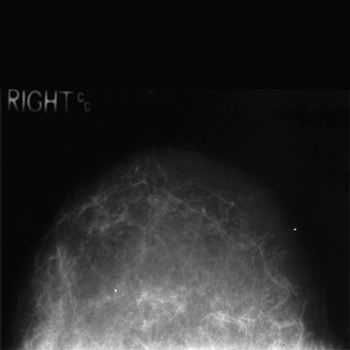
Patients with moderate cancer pain report significantly greater pain relief after taking low-lose morphine as opposed to weaker opioids.

Your AI-Trained Oncology Knowledge Connection!


Patients with moderate cancer pain report significantly greater pain relief after taking low-lose morphine as opposed to weaker opioids.

As the lead caregiver at the bedside, the oncology nurse plays a pivotal role in preventing missteps in end-of-life care decisions and ensuring that providers carry out the wishes of patients and families.

Identifying breast cancer patients who are at low risk for chemotherapy-induced nausea and vomiting before the start of treatment may help avoid unnecessary use of antiemetic medications without compromising quality of care.

A drug commonly given to cancer patients to relieve opioid-induced constipation is capable of slowing tumor growth and may play a role in developing new drug therapies.

Palliative care should be provided with cancer care early in the course of illness for all patients with advanced disease, according to a new guidance statement from ASCO and the American Academy of Hospice and Palliative Medicine.

A simple one-question tool may help oncologists more accurately predict cancer patients’ prognoses and know when to initiate end-of-life discussions.

Oncology and advanced practice nurses are key players in developing and managing specialized clinics that combine geriatrics and oncology care, according to a recent study.

Modifying pain intensity scales to include frequency as well as intensity of pain may be a more accurate and efficient way of screening cancer patients for pain.

Cancer survivors who were diagnosed as teens often experience emotional distress and neurocognitive dysfunction, interfering with social development as adults.

Cancer survivors may face discrimination by adoption agencies, many of which require medical histories and statements of health to be shared with birth mothers.

The Federal Trade Commission has charged four US cancer charities with fraud, accusing them of diverting more than $187 million in charitable donations.

More and more cancer patients are surviving their diseases as better treatments become available, and while that’s good news, it poses challenges for clinicians.

CMS has launched a new multi-payer cancer payment model that reimburses oncologists for episodes of care surrounding chemotherapy treatment, part of a larger effort by the agency to reward physicians based on quality rather than quantity of care.

Many women with breast cancer do not understand the details of their tumor characteristics or how they relate to specific treatment options, according to a new study.

Group exercise programs can improve the physical and mental well-being of prostate cancer patients, as well as providing emotional and social support.

ONS has released a position paper on palliative care, emphasizing its importance throughout cancer treatment and the critical role of nurses.

A panel of experts has put together a guide to implementing shared decision-making that provides tips for integrating the model into busy oncology practices.

Researchers have developed a screening tool to help oncology providers identify cancer patients who may benefit from referral to a palliative care specialist.

ASCO is calling for major reforms to the Medicaid system in order to close gaps in cancer coverage and improve quality of care for low-income Americans.

Cancer patients who received hospice care during the last year of life had fewer hospitalizations and lower overall costs than patients outside of hospice.

ASCO has issued a new online template to assist oncologists with creating survivorship care plans for their patients following active therapy.

A phone-based symptom monitoring system using "smart technology" led to improvements in patient quality of life during the final weeks of home hospice care.

A recent survey found that the financial burden of cancer treatment leads many patients to make potentially harmful medical care and lifestyle tradeoffs.

In a policy statement on the relationship between cancer and obesity, ASCO called on oncologists to integrate obesity prevention and management into patient care.

Using a simple questionnaire to assess anxiety in breast cancer patients before surgery may help alleviate patients’ fear and uncertainty, and improve outcomes.

Individualized counseling should begin before surgery and continue throughout treatment for breast cancer survivors fearful of developing lymphedema, says a new study.

Cancer patients on palliative care wards were more likely to experience a dignified death than patients in other parts of cancer centers, a recent study found.

Using a simple tool to measure performance status can help physicians predict survival and facilitate end-of-life planning in outpatients with advanced cancer.

Patients with limited life expectancies often undergo routine cancer screenings despite evidence that they are unlikely to benefit and may experience harm.

Involving palliative care teams early in the disease process in the outpatient setting can significantly improve end-of-life care for cancer patients, a recent study found.

Published: April 26th 2013 | Updated:

Published: April 27th 2013 | Updated:

Published: June 19th 2013 | Updated:

Published: June 23rd 2013 | Updated:

Published: August 23rd 2013 | Updated:

Published: August 23rd 2013 | Updated: